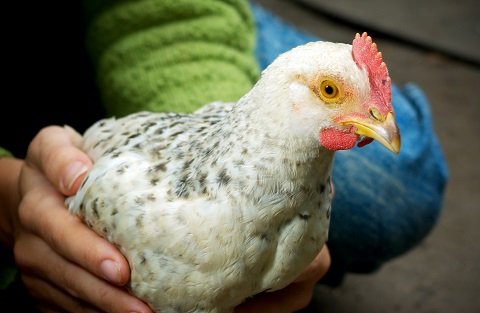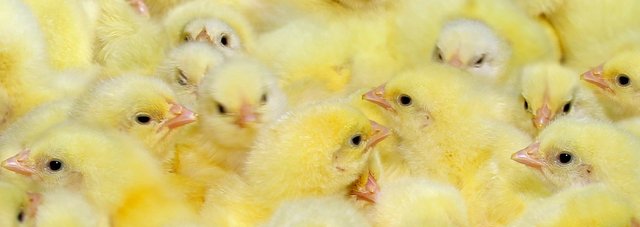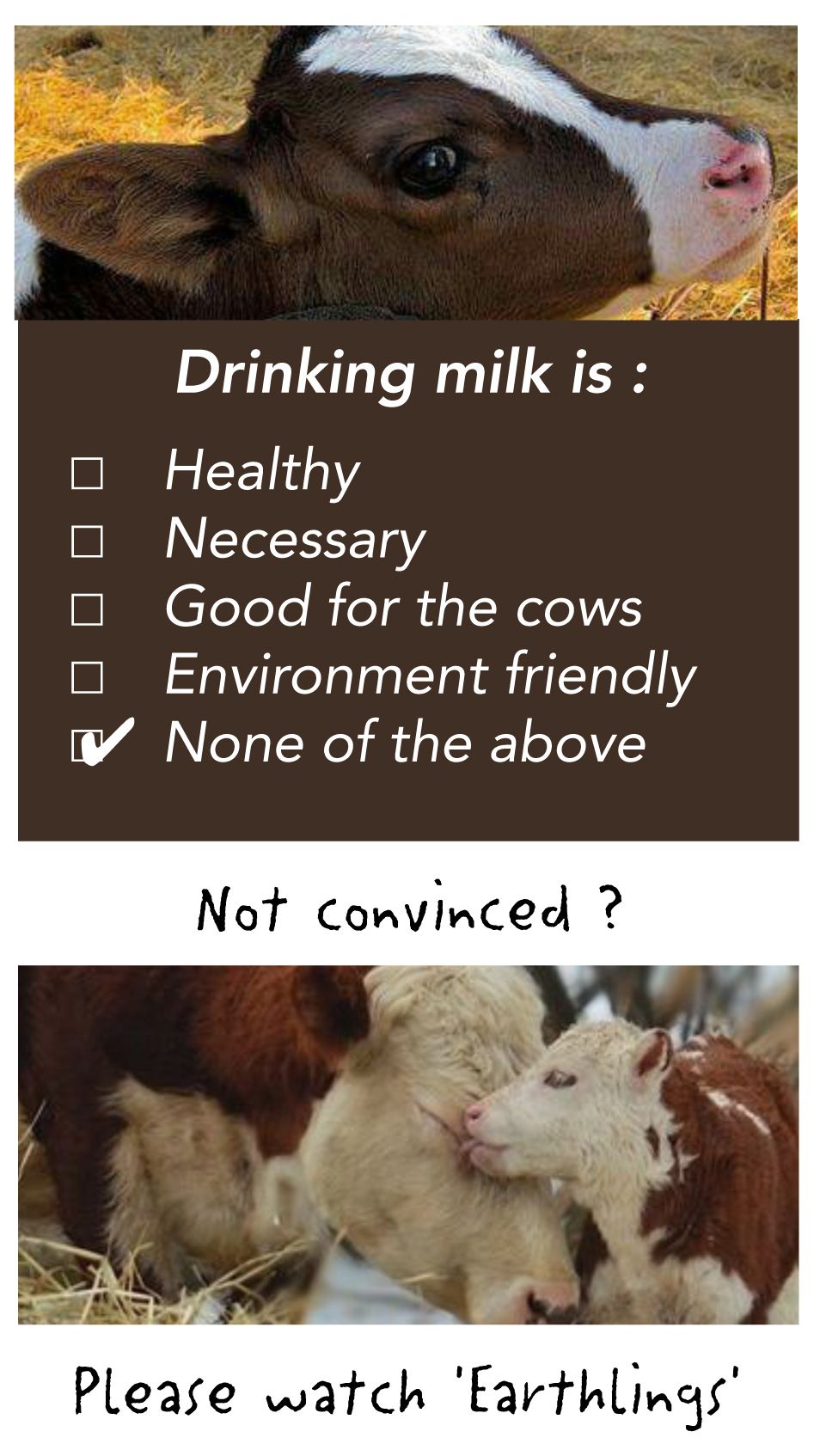We Can No Longer Say We Didn’t Know -- Injustice Against Animals

"It warn't the grounding —that didn't keep [the steamboat's arrival] back but a little. We blowed out a cylinder-head."
"Good gracious! Anybody hurt?"
"No'm. Killed a [slave]."
"Well, it's lucky; because sometimes people do get hurt.”
– Huckleberry Finn, chapter XXXII, 19th century
“Farm fire: 10,000 chickens dead; No one was hurt”
– Newspaper headline, 21st century
Rethinking Our Relationship with Nonhuman Animals
Why should we rethink our relationship with nonhuman animals? For the same reason we've rethought our relationship with other oppressed groups. Because we have individual biases and shared ideologies that have made humans blind in the past to their racism, sexism and homophobia. The “ism” that is least recognized at the moment is speciesism: discrimination against members of other species.
When people ask me, “Why should we give other animals moral consideration?” my response is, “Why should we not?” Sentience (the ability to suffer or enjoy life), and not cognitive complexity or any other characteristic or relationship, should be the basis for moral consideration. Most people, including and especially philosophers and judges, reject species membership alone as a basis for moral consideration because it is arbitrary. Instead, they claim that it is some characteristic or relationship (or some combination of them) that makes someone deserving of full moral consideration. Examples include (human-like) intelligence, social relationships with humans, and the ability to accept and act on duties towards others. But if we were to discriminate against nonhuman animals based on these things, we would be holding them to a higher burden of proof of moral worthiness than we do humans! There is no verifiable characteristic or relationship that all humans and only humans have.
You might think that being human is all that is required for moral consideration, and anyone who is not human doesn't deserve it unless humans want them to have it. But that's not even how our human society works now. As mentioned above, judges and philosophers reject species membership as a basis for moral consideration, and so do most policy makers. Judges in the US have acknowledged that the official legal basis, autonomy, is not possessed by all humans and therefore they create legal fictions to provide protections for humans who are conscious (sentient) but not autonomous. Therefore, if we are to be fair and consistent, we should give nonhuman animals the same consideration that we give humans for the same reason: sentience, or the ability to have positive and negative experiences.
If a human is a someone even if they have little cognitive ability, no ability to communicate with other humans, and no meaningful human relationships, then why should we view other animals as things, animals who are more cognitively advanced and socially connected than some humans?
When Did a Chicken Become Chicken?

What do you think of when you hear the word “chicken”? Do you think of a conscious creature who can feel pain and pleasure? Someone with a life, a family, wishes and desires? Or do you think of a slab of flesh on your plate?
Have you ever seen a chicken playing with a dog[1]? Or a mother hen protecting and nurturing a litter of orphaned puppies? We know that chickens are social creatures, with a sophisticated pecking order when they live in natural conditions. But how many people know that they are also playful and affectionate, like dogs? Putting a chicken and a dog together in a yard will lead to some intense social activity, though it is uncertain whether they will become friends or rivals, or both.
Watching their skirmishes can be either amusing or painful, depending on your perspective, because dogs and chickens aren't evenly matched. In a game of wits, chickens usually win[2]. This is not to say that social and intellectual superiority should determine who we pet and who we stick a fork into. But it's food for thought.
Chickens weren't always thought of as food. Or as cowards. In Greek and Roman times, people associated chickens with bravery and virility. Cockfights were staged in ancient Greece to teach soldiers how to be courageous in battles to the death. Roman soldiers used chickens as fortune tellers, probably because of the valor of roosters. The Romans believed that the behavior of their fortune telling chicken would predict battle outcomes. A chicken's appetite before a battle indicated whether the army would win or be defeated.
In medieval times, people thought chickens could ward off witches, although they occasionally accused chickens of being helper demonic spirits, or “familiars” to witches. Chickens were less often considered dinner. Medieval cock fights were a common occurrence, carrying on an ancient tradition that persists into modern times.
Modern technology made the dream of “a chicken in every pot” a reality only because it made it possible to stuff chickens with antibiotics and fortified feed so they could be crammed into indoor warehouses and not die from vitamin deficiencies or diseases resulting from crowding and filth. The reason it's now so inexpensive to eat chickens' bodies is because chickens can be bred and raised packed together wing to wing in a warehouse so toxic with ammonia and other waste products that humans wear gas masks to enter it.
When they aren't being used for food or for entertainment in the form of cock fighting, chickens' bodies are now used to educate and amuse children. Classroom hatching projects are common. Mummifying a chicken is all the rage among home schoolers these days, though the Egyptians, when they took notice of chickens at all, were more interested in them as a food source.
Backyard chickening is becoming increasingly popular as well, and it is even possible to Rent-a-chicken to try out chicken farming as a low-risk investment.
But where is the respect?
International Respect for Chickens Day[3] doesn't have much currency. However, scientists are beginning to scrutinize their own dietary choices. Those who study consciousness are increasingly going vegan. Neuroscientist and renowned consciousness researcher Christof Koch has been vegan for many years. Contemplating the inconsistency between what he knew and what he did, Phillip Low, the neuroscientist who drafted the Cambridge Declaration on Consciousness[4], went vegan after declaring that the animals we eat are conscious in the same way humans are, which means that they can suffer similarly to humans. Evolutionary biologist Richard Dawkins, who is constantly reminding the public that the difference between humans and other animals is a difference only in degree and not in kind, has acknowledged that he can't defend his choice[5] to continue eating nonhuman animals.
As neuroscientist Philip Low said after the signing the Cambridge Declaration on Consciousness, “We can no longer say that we didn't know.”
